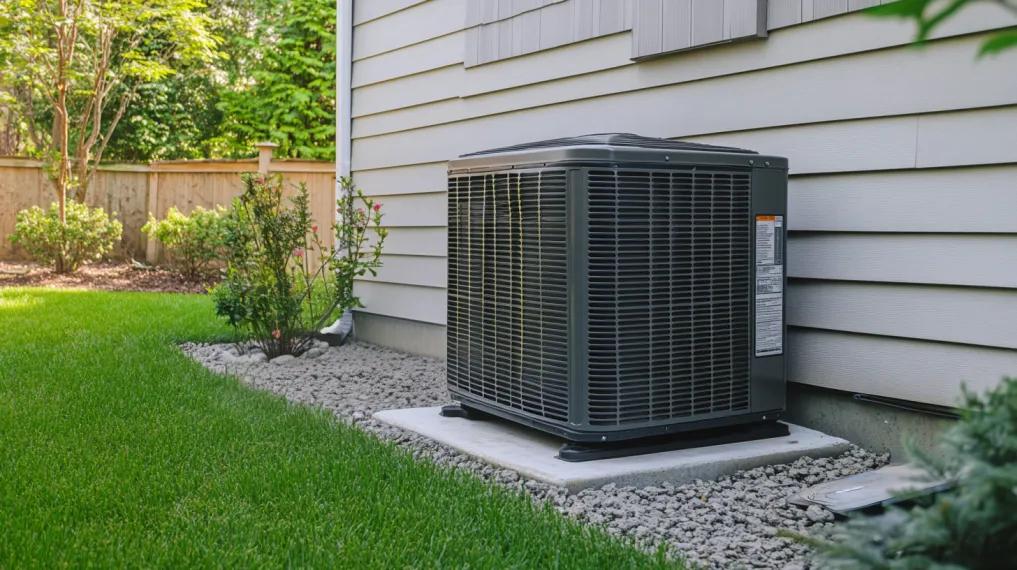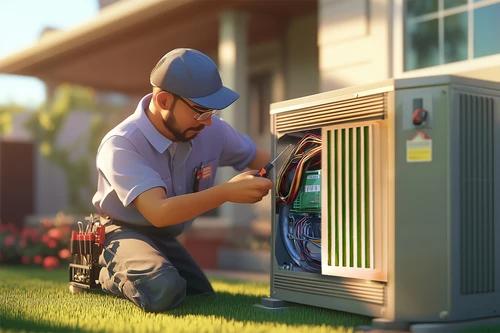Heat Pump Capacitor Replacement

A heat pump relies on various components working together to heat and cool your home efficiently. When one part fails, it can affect the entire system. One crucial component is the capacitor. While it may be small and hidden from view, it plays a big role in starting the system and keeping it running smoothly. HVAC.com explains how a heat pump capacitor works, signs it may need replacing, and the costs of installing a new one.
How Does a Heat Pump Capacitor Work?
A heat pump capacitor is a silver cylindrical canister (about the size of a soda can) located inside the outdoor condenser unit. When the thermostat activates heating or cooling, the capacitor – which stores and releases electrical energy – acts like a battery to provide the initial power jolt of electricity to the compressor and fan motor.
There are different types of capacitors: while the start capacitor provides the initial power boost, the run capacitor maintains continuous energy supply to the motor. Many modern systems use a dual capacitor that combines both functions into one unit, which is common in systems with a single compressor and fan motor. Heat pump capacitors are rated in microfarads (µF) and usually work with voltages ranging from 370 to 440 volts, depending on the system.
Signs of a Bad Heat Pump Capacitor
Several signs may indicate that the capacitor is failing:
- Heat Pump Won’t Start: If the capacitor is failing, the compressor or fan motor may struggle to start or fail completely, leaving the system unresponsive.
- Unit Turns Off: A faulty capacitor can cause the system to turn off in the middle of a cycle.
- High Energy Bills: A bad capacitor can make the motor and compressor work harder, leading to inefficiency and higher energy costs.
- Clicking or Humming Noise: If the capacitor can’t supply enough power to get the compressor or fan motor up to speed, you might hear a humming noise.
- No Cold/Warm Air: If the heat pump runs but doesn’t blow air, it may be due to a capacitor failing to start the compressor, preventing proper heat transfer.
- Burning Smell: A failing capacitor can overheat, causing a burning smell due to electrical failure or nearby components being damaged.
The Cost of Heat Pump Capacitor Replacement
Heat pump capacitor replacement generally costs between $10 and $50 for the part alone. When factoring in professional installation, the total cost of replacement typically ranges from $100 to $400. Key factors that affect pricing include:
- Capacitor Specifications: Larger systems with higher voltage requirements will need more expensive capacitors.
- Size and Type: Specialized capacitors, such as dual-run models, tend to be more expensive.
- Brand and Quality: Premium brands or EM capacitors may cost more but offer better longevity and reliability.
- Retailer Pricing: Different retailers may charge varying prices based on their own overhead and pricing strategies.
- Warranty Coverage: Many heat pump capacitors are covered under warranty if the failure is due to a manufacturing defect. The coverage can vary based on warranty terms and conditions.
- Labor Costs: Labor costs can influence the overall cost of heat pump capacitor replacement, with rates varying by location and technician skill level.
How Long Do Heat Pump Capacitors Last?
The lifespan of a heat pump capacitor typically ranges from 5 to 20 years, with an average of about 10 years. Factors such as extreme temperatures, electrical issues, corrosion, and poor installation can shorten the capacitor’s lifespan.
